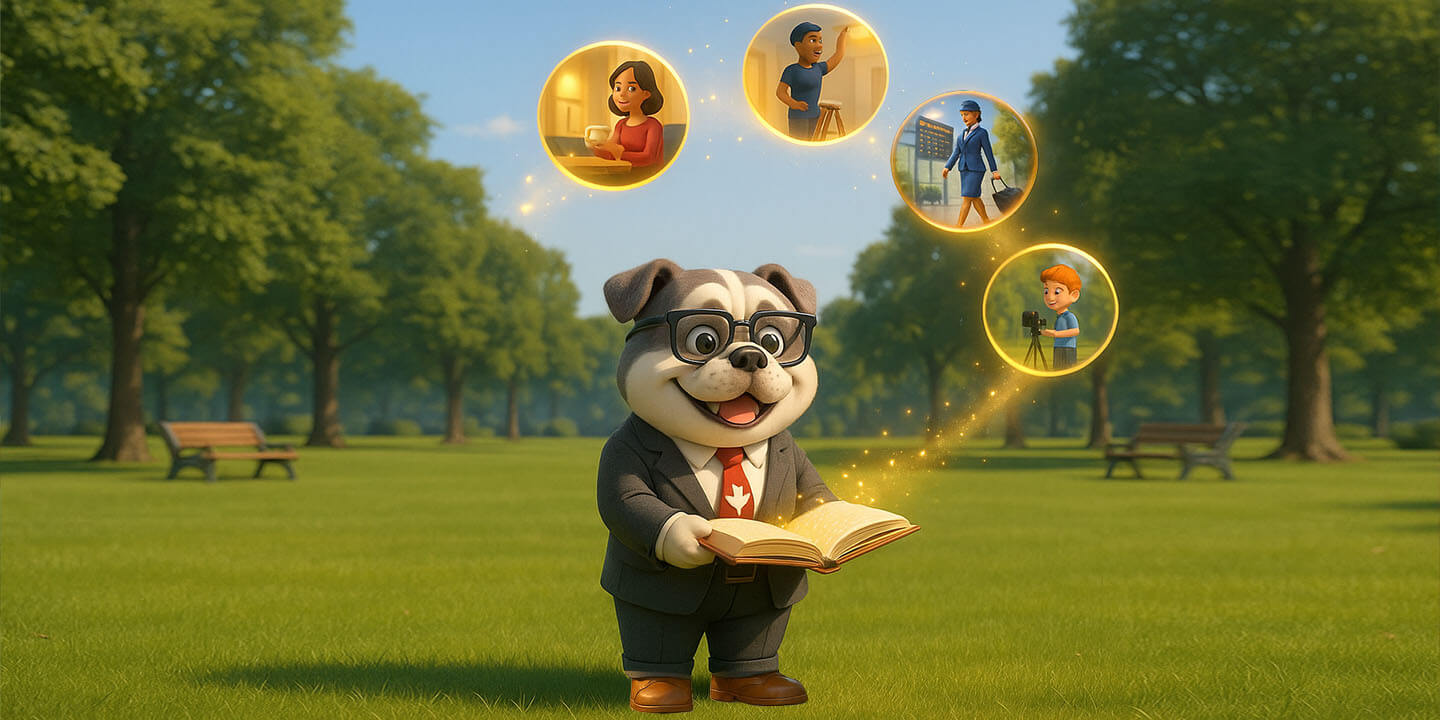Why stories work better than traditional exercises. Learn how real-life scenarios help you remember vocabulary and grammar naturally.
Why Traditional Methods Fall Short
Traditional language learning often relies on repetitive exercises, grammar drills, and vocabulary lists. While these methods have their place, they often fail to create lasting connections in our minds. We memorize words for a test, only to forget them weeks later.
The problem is that traditional learning lacks context. When you learn words in isolation, they don't stick. They're like loose puzzle pieces without a picture to guide you.
Stories: The Natural Way to Learn
Humans have been learning through stories for thousands of years. Stories engage multiple parts of our brain simultaneously:
- Emotional connection: Stories make us feel something, and emotions enhance memory
- Contextual learning: Words and phrases appear in natural situations
- Pattern recognition: Our brains naturally look for patterns in narratives
- Visualization: We create mental images that reinforce learning
How Smart Bulldog Uses Stories
At Smart Bulldog, every learning session revolves around a story. You might talk about:
- Weekend plans with friends
- A conversation at Snow&Shell Café
- Helping Aarav fix something in his apartment
- Discussing travel plans with Kate
- Sharing family stories with Rumpel
These aren't random scenarios. They're carefully crafted stories that feature characters you know, in places you can visualize, doing things that make sense.
The Science Behind Story-Based Learning
Research in cognitive science shows that narrative learning is more effective than rote memorization because:
Contextual Embedding
When you learn vocabulary within a story, words are embedded in context. You don't just learn the word "coffee" – you learn it as part of ordering at a café, discussing preferences, or sharing morning routines. This contextual embedding creates multiple neural pathways to the same information.
Emotional Resonance
Stories create emotional connections. When you feel something about what you're learning, your brain releases chemicals that strengthen memory formation. You remember the funny moment when Michelle mixed up orders, or the warm feeling of Rumpel's encouragement.
Pattern Recognition
Our brains are pattern-recognition machines. Stories provide natural patterns of language use – how questions flow into answers, how descriptions lead to actions, how conversations naturally progress. You absorb these patterns without consciously studying them.
Real-Life Application
The beauty of story-based learning is that it directly translates to real-life situations. When you practice ordering coffee in a story with Michelle, you're prepared to do it in real life. When you discuss weekend plans with Rumpel, you can have similar conversations with English-speaking friends.
Unlike textbook dialogues that feel artificial, Smart Bulldog stories mirror real conversations. They include the hesitations, the follow-up questions, the natural flow of authentic communication.
Building Confidence Through Stories
Stories also build confidence in ways that exercises cannot:
- Progressive complexity: Stories start simple and gradually add complexity
- Familiar characters: You practice with friends you know, reducing anxiety
- Safe environment: No judgment, just kind guidance from Rumpel
- Immediate relevance: Stories about your actual life and interests
The Long-Term Benefits
Students who learn through stories show remarkable long-term retention:
- Better recall of vocabulary months after learning
- More natural pronunciation and intonation
- Greater confidence in spontaneous conversations
- Ability to guess meaning from context
- Improved understanding of cultural nuances
Why It Works for Adults
Adult learners particularly benefit from story-based approaches because:
- Adults have life experience that connects to stories
- They understand narrative structure and can follow complex plots
- Adults learn better when material feels relevant and meaningful
- Stories respect their intelligence while being accessible
The Smart Bulldog Difference
What makes Smart Bulldog's story-based approach unique is the combination of:
- Consistent characters: You build relationships with Rumpel and friends
- Realistic scenarios: Stories reflect actual adult conversations
- Kind corrections: Learning happens without stress or embarrassment
- Progressive difficulty: Stories grow with your abilities
Your Story Awaits
Everyone has a story to tell, and learning English should help you share yours. Through Smart Bulldog's story-based approach, you don't just learn a language – you gain the confidence to use it in your own narrative.
Ready to start your English learning story? Discover how Rumpel and friends can guide you through engaging, story-based conversations that make learning natural and enjoyable.
